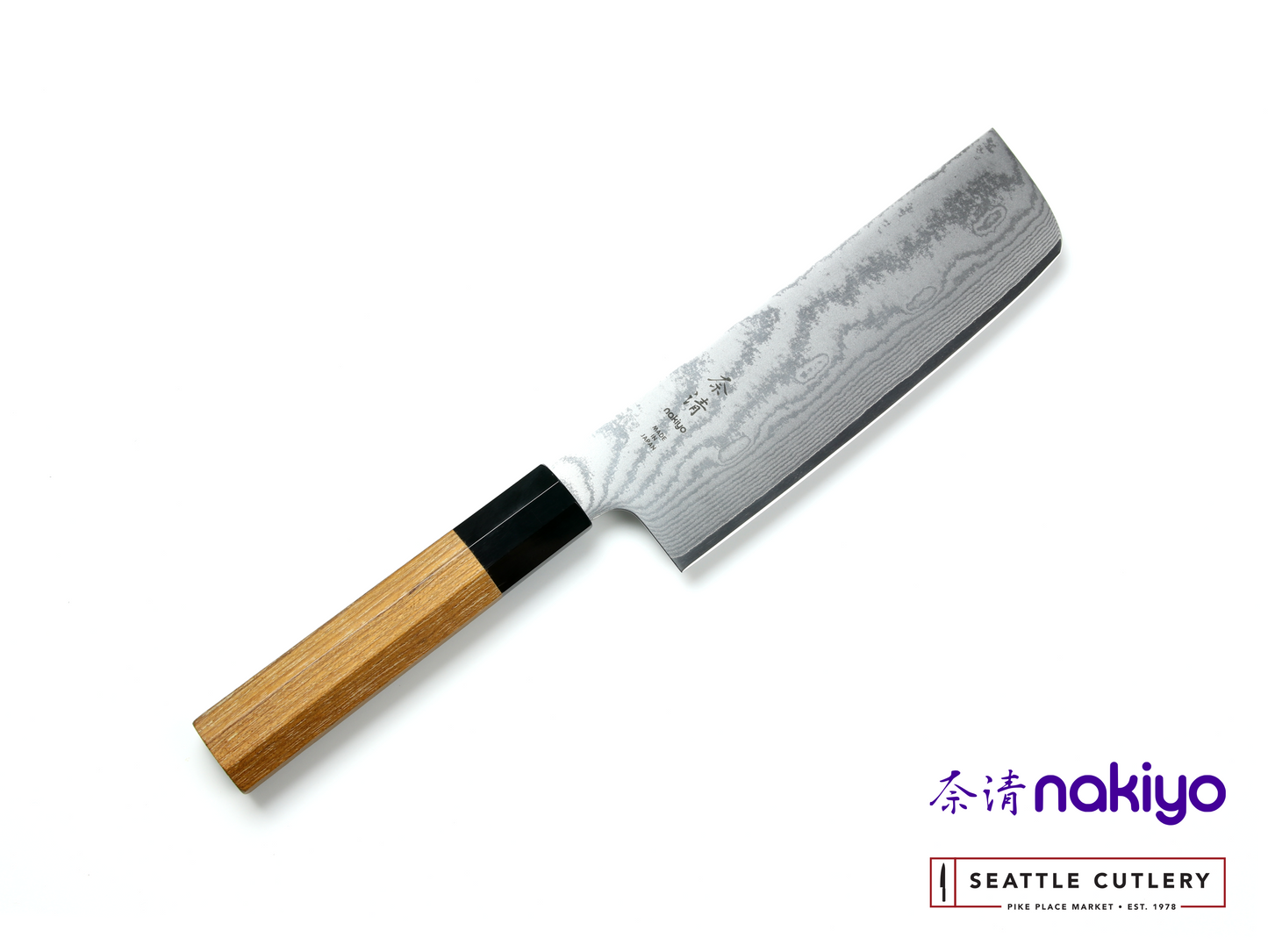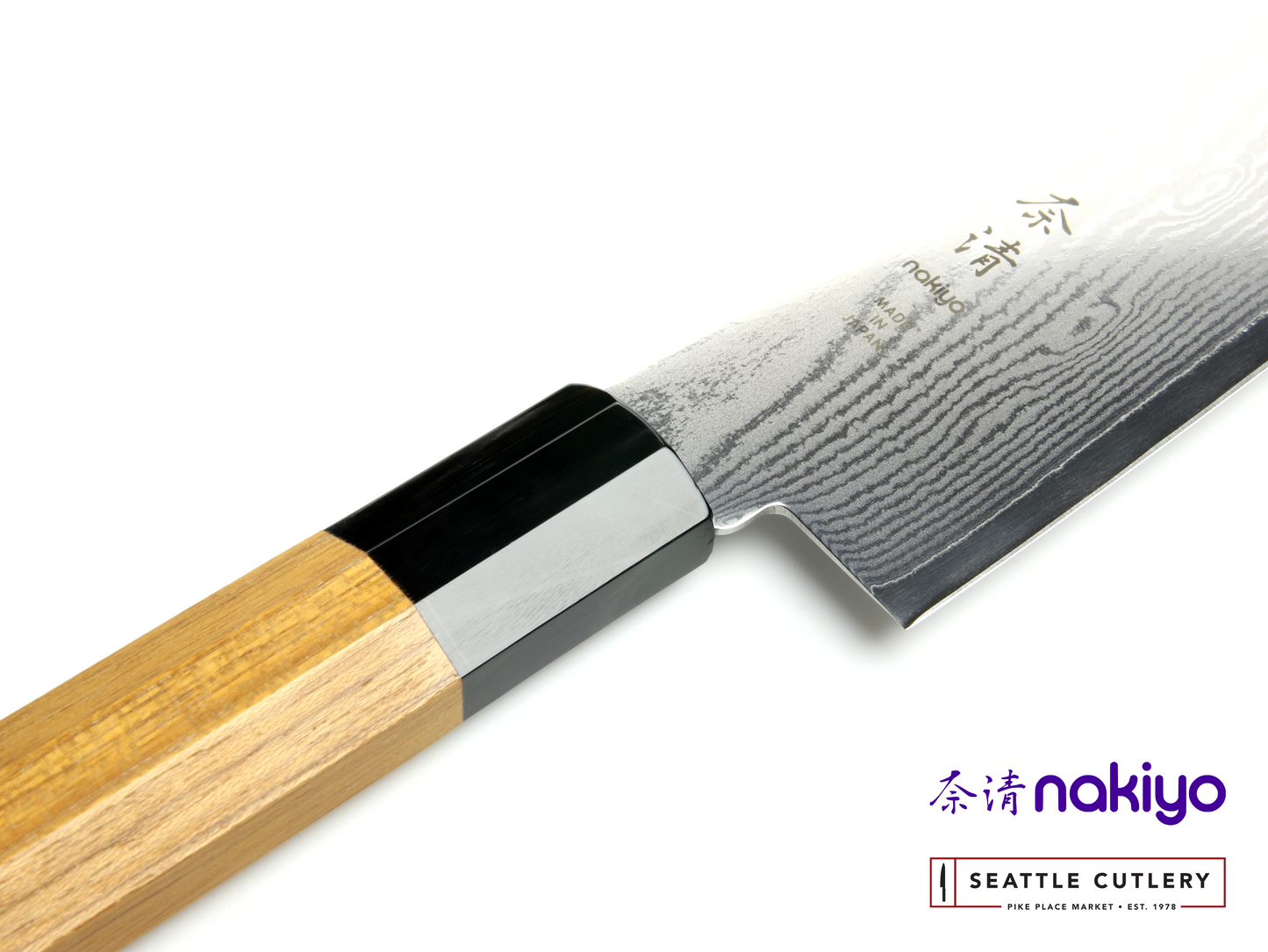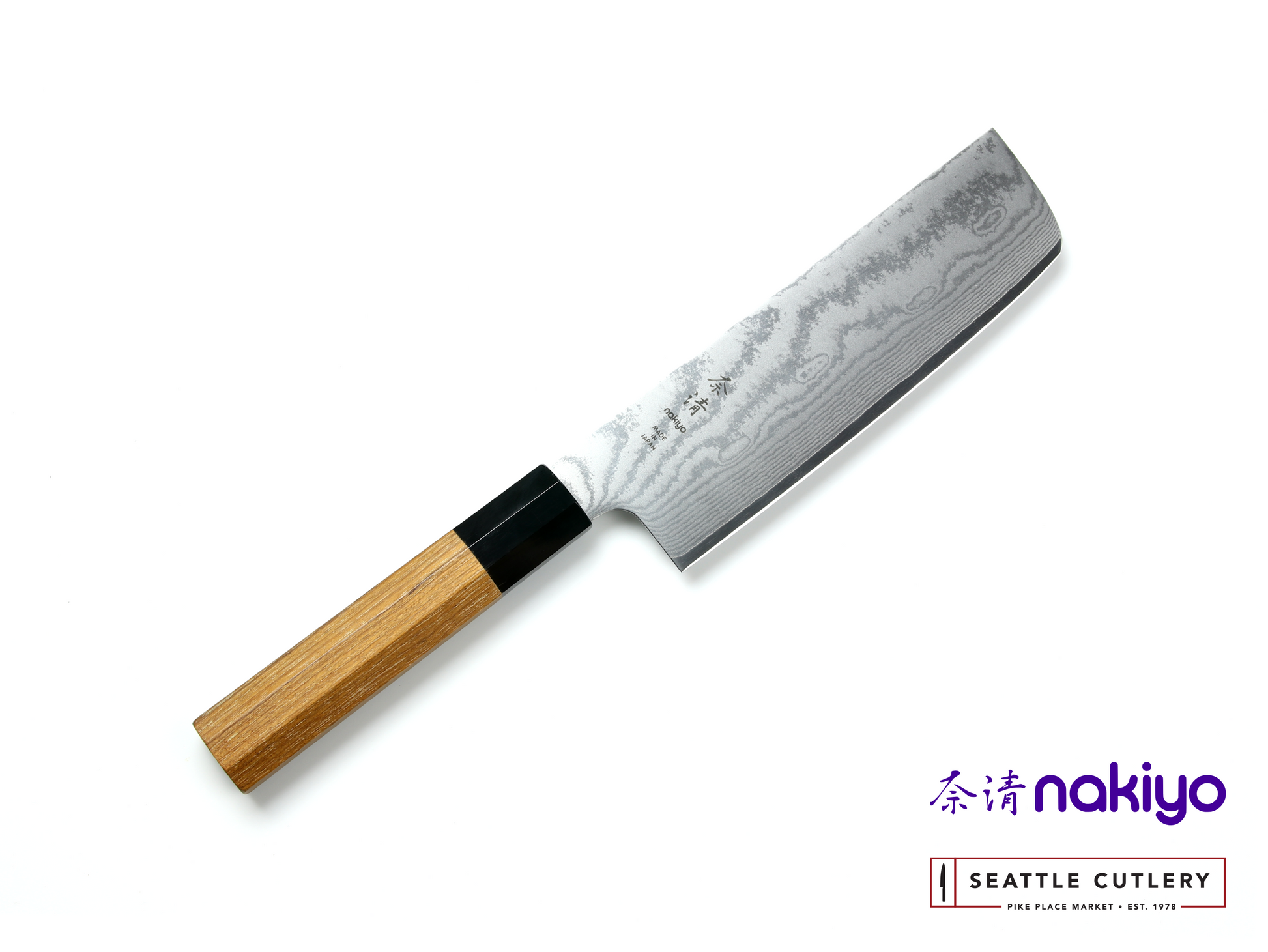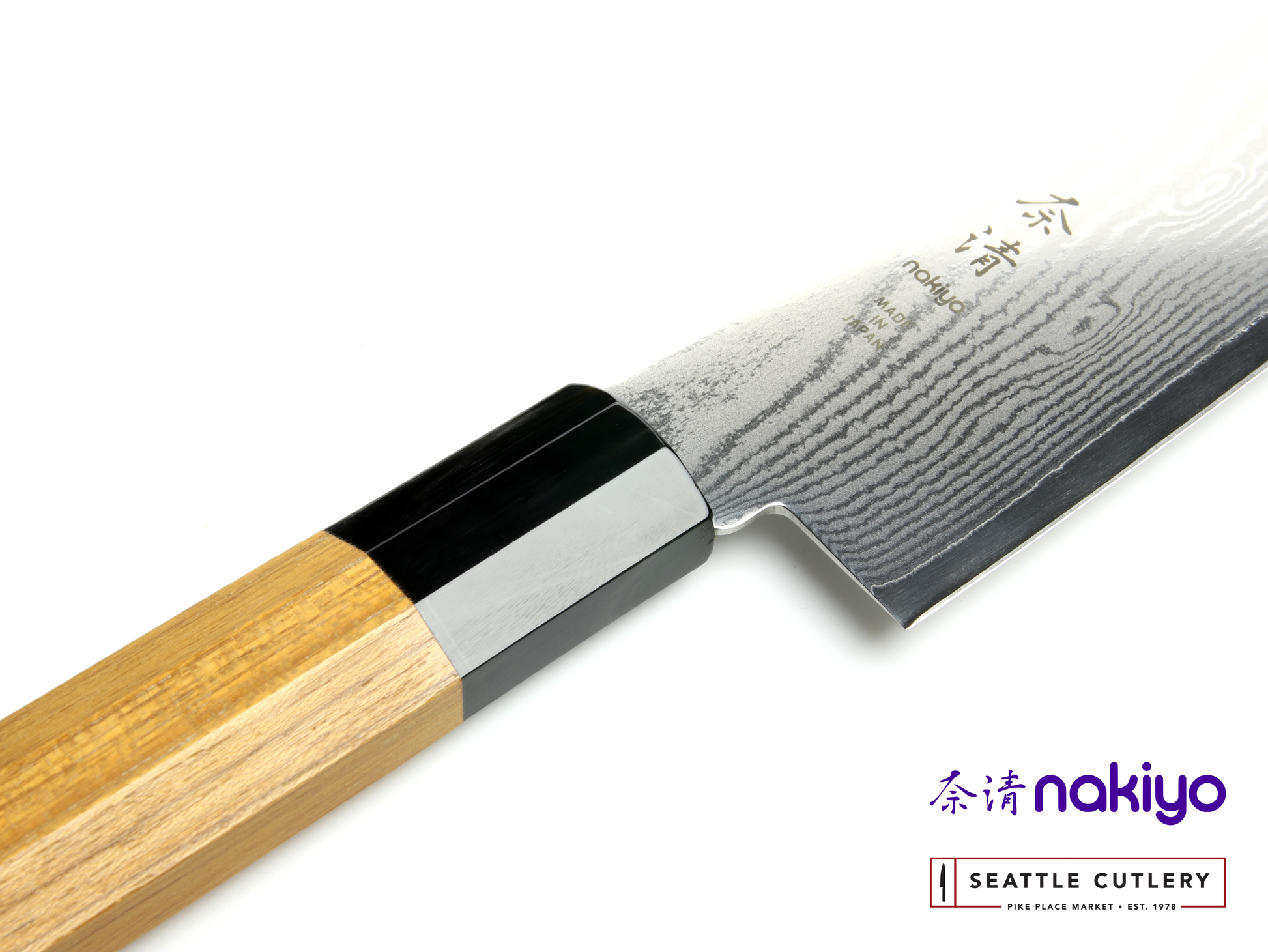Nakiyo Teak Damascus Nakiri
Nakiyo Teak Damascus Nakiri
Out of stock
Couldn't load pickup availability
Share
The nakiri bōchō (菜切り包丁), “knife for cutting greens,” is a traditional Japanese vegetable knife. Though similar in appearance to a cleaver, it could hardly be more different—with a unique shape and balance that set it apart from other types, this handsome knife is ideal for vegetables and a must-have for anyone who loves cooking with them.
Function
Unlike the santoku and gyuto (chef’s knife), which have narrow tips intended for cutting meat, the nakiri has a square tip and broad blade that maximize chopping power along the full length of the knife. The straighter edge ensures full contact with the cutting board, helping to cut through tough vegetable skins that a rounded edge can miss, while the rounded corner facilitates rock-chopping. Like other Japanese knives, the nakiri has a thinner blade and more acute edge than European knives, so it can effortlessly make straight cuts and doesn’t break stiff vegetable slices.
Form
Damascus steel was first developed in India over 2,000 years ago and quickly established a reputation not only for its beauty, but also as one of the greatest metallurgical innovations in history. Swords forged in Persia and sold in the Syrian city of Damascus inspired legends of their ability to slice through a gun barrel or part a hair falling across the blade. Although the ancient technique was lost to history around 1900, modern metallurgists have succeeded in reproducing the effect with state-of-the-art alloys to bring performance to the next level.
Nakiyo Damascus blades are forged from 63-layer (all larger knives) or 37-layer (paring, peeling, and petty knives) Damascus steel, which is made by repeatedly folding and forge welding two stainless steels with different carbon contents. The resulting material bears the elegant, wavelike pattern produced by its many fine layers—a testament to its strength, flexibility, and durability. This Damascus envelops a core of harder VG-10 cobalt alloy steel, a high-carbon stainless steel developed in Japan. Hardened to a Rockwell hardness of 62, it accommodates a long-lasting, razor-sharp edge.
The lightweight handle is crafted from strong and durable teak (Tectona grandis) wood, which provides a secure grip without upsetting the knife’s balance. The wood, among the most water-resistant species in the world, is secured and accented by a ferrule (collar) of black water buffalo horn. Its octagonal profile guarantees a firm hold and is suitable for both right- and left-handed users.
Specifications
Specifications
Length
165 mm (6.5") blade, 305 mm (12.0") overall
Weight
160 g (5.6 oz)
Blade Material
63-layer Damascus with VG10 cobalt alloy core
Edge
Double bevel
Handle Material
Solid teak wood with buffalo horn ferrule
Handle Shape
Octagonal
Warranty
Warranty
All Nakiyo, Tojiro, Sabatier, and SeaCut products sold by Seattle Cutlery are covered by our lifetime warranty against defects in materials and workmanship. If you follow our care and maintenance advice and your knife ever fails during honest use, we will gladly repair or replace it. Our warranty does not cover regular wear and tear or damage due to misuse, but we may still be able to help in some cases.
Returns
Returns
Any item in original, unused condition may be returned within 30 days for any reason. Shipping charges are non-refundable. Read our full refund policy here.


I received this knife as a Xmas gift, after having seen it in person at the Seattle store. It’s the perfect knife! Great balance, it feels good in your hand, slices like a dream. I find myself coming up with more veg dishes just to use it again. Excited to use this for years to come. I love the store and the staff is knowledgeable and friendly.
My wife already had 3 Nakiyo Teak Damascus knives—I purchased the Nakiri on-line from Seattle Cutlery to add to her collection. It was a hit! Love the cleaver-like vibe but in a nimble size and weight. Love Seattle Cutlery —
I stepped into the SeaCut store on a trip to Seattle, the team was helpful and informed and made our purchase (and shipping!) easy. Definitely a go to for new knives.
I own a lot of knives and this is one of the finest ones for the price that I’ve ever purchased extremely sharp durable with the Lasting edge. This is a quality Product
This veggie knife exceeds my expectations in terms of quality and performance… it also looks beautiful! I use it several times a week, and with simple honing it maintains its blade just fine.


